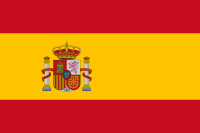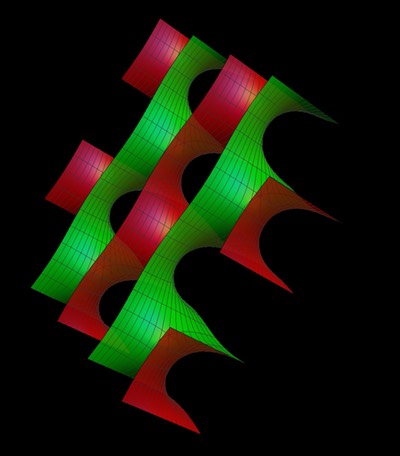Graduate course on Mean Curvature Flow
On January 17, 2024, the course titled "Mean Curvature Flow" will begin as part of the Mathematics Ph.D. program. The course content will include:
1. Introduction to Geometric Flows
2. Existence and uniqueness
3. Evolution of the Geometry by the Mean Curvature Flow
4. A comparison principle for parabolic PDE’s
5. Graphical submanifolds. Comparison Principle and Consequences
6. Area Estimates and Monotonicity Formulas
7. Some Remarks About Singularities
8. Brakke’s Flow
9. Mean Curvature Flow with Boundary
The classes will take place in Seminar Room 1 at IMAG, and the schedule will be as follows:
• January: Mondays and Wednesdays from 12 to 2
• February: Tuesdays and Thursdays from 12 to 2.
Motivation
The exploration of mean curvature flow represents an enthralling and well-established realm within the landscape of mathematical inquiry. Positioned at the nexus of diverse scientific disciplines, this field encompasses Geometric Analysis, Geometric Measure Theory, Parabolic Partial Differential Equation (PDE) Theory, Differential Topology, Mathematical Physics, Image Processing, and Computer-Aided Design, among other domains. In initiating this doctoral course, the aim is to furnish an introductory platform for those seeking to immerse themselves in the intricacies of geometric evolution problems inherent to curves and surfaces, with a specific emphasis on curvature flow phenomena.
The significance of this course lies in its capacity to equip participants with the foundational knowledge needed to navigate through complex mathematical terrain. As we delve into curvature flow problems, we uncover a rich tapestry of nonlinear partial differential equations, offering a profound insight into the mathematical modeling of diverse physical processes. Examples include elucidating the dynamics of interface propagation between materials, understanding the nuanced motion of fluids featuring free boundaries, deciphering the mechanisms governing crystal growth, and exploring a myriad of analogous phenomena.
By embracing the multifaceted nature of these geometric evolution challenges, participants will not only gain a deeper understanding of the fundamental principles at play but will also be equipped with valuable tools for addressing real-world phenomena. The course aims to foster a comprehensive appreciation for the interconnectedness of mathematical theories and their applications across various scientific domains, providing a robust foundation for further research and exploration in this captivating field.
References
[1] An introduction to the mean curvature flow. F Martín, J Pérez - XXIII International Fall Workshop on Geometry and Physics, 2014
[2] Brian White - Mean curvature flow (math 258) Stanford lecture notes
[3] Mean Curvature Flow and Isoperimetric Inequalities. Manuel Ritoré , Carlo Sinestrari. Birkhäuser, Bassel, 2010
[4] Minimal Surfaces: Integrable Systems and Visualisation. Editors: Tim Hoffmann, Martin Kilian, Katrin Leschke, Francisco Martin. Springer, 2021
[5] The Avoidance Principle for Noncompact Hypersurfaces Moving by Mean Curvature Flow. Brian White, arXiv:2401.13966
Sessions
Weekly sessions of the course will be posted here. The password is the same as the graduate course:


